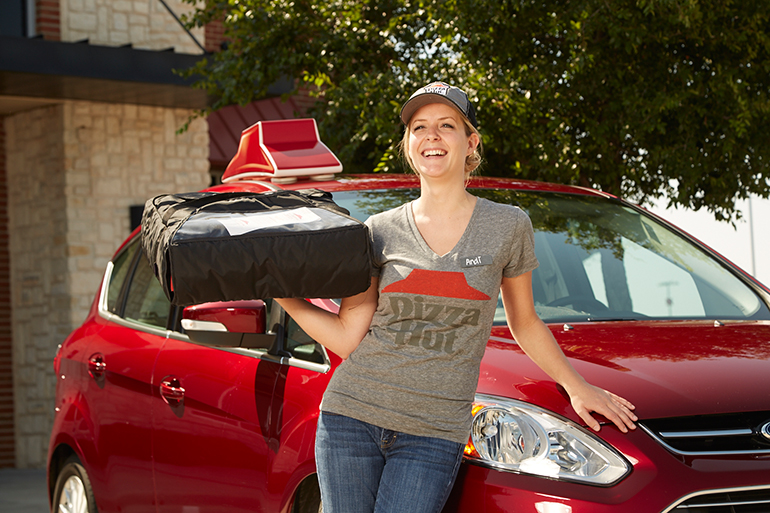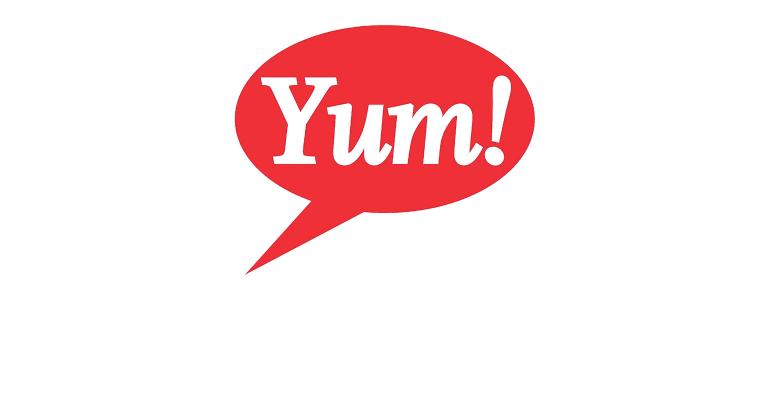Source: Nation’s Restaurant News, December 2018
Taco Bell and KFC plan more kiosks as Pizza Hut tackles misperceptions around delivery
As it emerges from a massive two-year transformation plan to drive sales and unit growth, Yum Brands is taking the “if it ain’t broke, don’t fix it” attitude for growing the company’s three iconic fast-food brands: Taco Bell, KFC and Pizza Hut.
“I absolutely love where Yum is today,” CEO Greg Creed said during the company’s Investor Day conference held Wednesday in New York. “It’s a business model, I think, that is the envy of our category.”
Creed, Yum’s CEO since 2014, said the Louisville, Ky.-based company is in “the strongest position” it’s been in the company’s history. Going forward, he said Yum plans to focus on the traits that have boosted each brand’s profile in the last year: relevant, easy and distinct.
Yum is going to emphasize those drivers, while leveraging the scale of the three global brands, Creed told investors.
“There’s simply no other restaurant company or retailer in the world like us,” Creed said.
Leaders from Yum and its brands gave investors and analysts a preview of what to expect from each brand in the coming months. Here are the highlights:

Taco Bell: “A category of one”
Taco Bell plans to ramp up its international growth, add kiosks to stores by the end of 2019, and roll out more innovative and value focused menu items.
 “2019 will be a big year for both value and innovations for Taco Bell,” said Julie Felss Masino, president of Taco Bell North America.
“2019 will be a big year for both value and innovations for Taco Bell,” said Julie Felss Masino, president of Taco Bell North America.
Masino and Liz Williams, president of Taco Bell International, inherited the top leadership roles at Taco Bell after former CEO Brian Niccol left for Chipotle Mexican Grill in early 2018.
Masino said innovation and ideas that strengthen company culture will continue to be the heart of the brand.
“We do things in our own way,” she said.
The Irvine, Calif.-based chain has seen unprecedented sales growth, with the company adding roughly a half billion dollars in systemwide sales annually. Since 2012, the company has seen sales jump from $7.8 billion to $10.5 billion at the close of the third quarter of 2018.
“In an industry that is contracting, this is no small feat,” Masino added.
 Internationally, Williams said the brand, which has nearly 500 global units, will focus new growth in Brazil, Russia, India, China. Those countries, she said, have the potential for adding 1,000 stores, per market.
Internationally, Williams said the brand, which has nearly 500 global units, will focus new growth in Brazil, Russia, India, China. Those countries, she said, have the potential for adding 1,000 stores, per market.
She and Masino said the chain will continue to capitalize on the brand’s loyal following worldwide.
“It’s a category of one for everyone,” Williams said.

KFC: Blending innovation and history
KFC plans to be disruptor on value, increase its pipeline of innovative LTOs and add more digital channels such as “click and collect” pick up sites and kiosks.
 Incoming CEO Tony Lowings, who is replacing veteran KFC leader Roger Eaton in January, said the Louisville, Ky.-based chain will introduce 50 new LTOs around the world over the next year.
Incoming CEO Tony Lowings, who is replacing veteran KFC leader Roger Eaton in January, said the Louisville, Ky.-based chain will introduce 50 new LTOs around the world over the next year.
Taking advantage of growing consumer interest in fried chicken, Lowings said KFC’s menu will become more “in tune” with regional food trends.
“We want to be seen as a fast good company not just as a fast food company,” he said.
Marketing will also emphasize the brand’s authenticity such as being founded by Colonel Harland Sanders. Playing up the brand’s “real” back story is something KFC can improve upon, he said.
“Our history is real,” he said. “We haven’t done a good enough job in making sure those iconic assets are utilized in the right way.”
In terms of growth, KFC is shifting into high year with plans to open one new store every five hours, the company said.

Pizza Hut: Proud but dissatisfied
Pizza Hut, the weakest of the three Yum brands, has made great strides improving customer satisfaction scores and delivery times, but still has a long recovery road ahead, leaders said.
“I couldn’t be more excited of what we are doing online,” said Artie Starrs, president of the U.S. division.
While proud of those achievements, Starrs said he’s “dissatisfied” with certain aspects of the business including the brand’s lack of relevancy.
To become a more “distinctive” brand, Pizza Hut plans to focus on menu innovation in 2019, Starrs said.
Some changes have already been kickstarted such as the recent introduction of the $5 lineup, which hasn’t been around for two years. The menu, valid when you buy two or more items, includes a medium, one-topping pizza; eight bone-out Wing street wings, stuffed garlic knots, Tuscani Pasta, a double order of breadsticks, a Hershey’s Cookie (the 6-inch diameter cookies cut into 8 pieces), a four-pack of 20 oz. beverages and the new Cinnabon Mini Rolls.
Pizza Hut leaders said the $5 menu has been “architected” to improve franchise profitability. But it will take time before stores see results, he added.
Though the company has invested capital in delivery, Starrs said he’s frustrated that the brand is not getting credit for those changes.
In many parts of the country, especially markets with a heavy presence of legacy “red roof” dine-in restaurants, consumers don’t realize the chain delivers.
“We have work to do here,” he said.

Going forward, he said the company is increasing its small format “Delco” restaurants. The company has built 600 of these delivery and carryout-focused restaurants in the last 12 months. In the U.S., the company is also experimenting with fast-casual Delco restaurants, smaller footprint stores with some dine-in capacity.
The Delco stores instantly elevate consumer perception, he said.
“Consumers tell us the food tastes better, even if it is the same menu,” he said.
The same goes for remodeled units.
“When you remodel, the brand pumps up and elevates,” he said.
Internationally, new growth will also focus on the Delco design as the company shifts its focus away from dine-in restaurants.
“That’s the model that works,” said Vipul Chawla, named president of Pizza Hut International in October.

